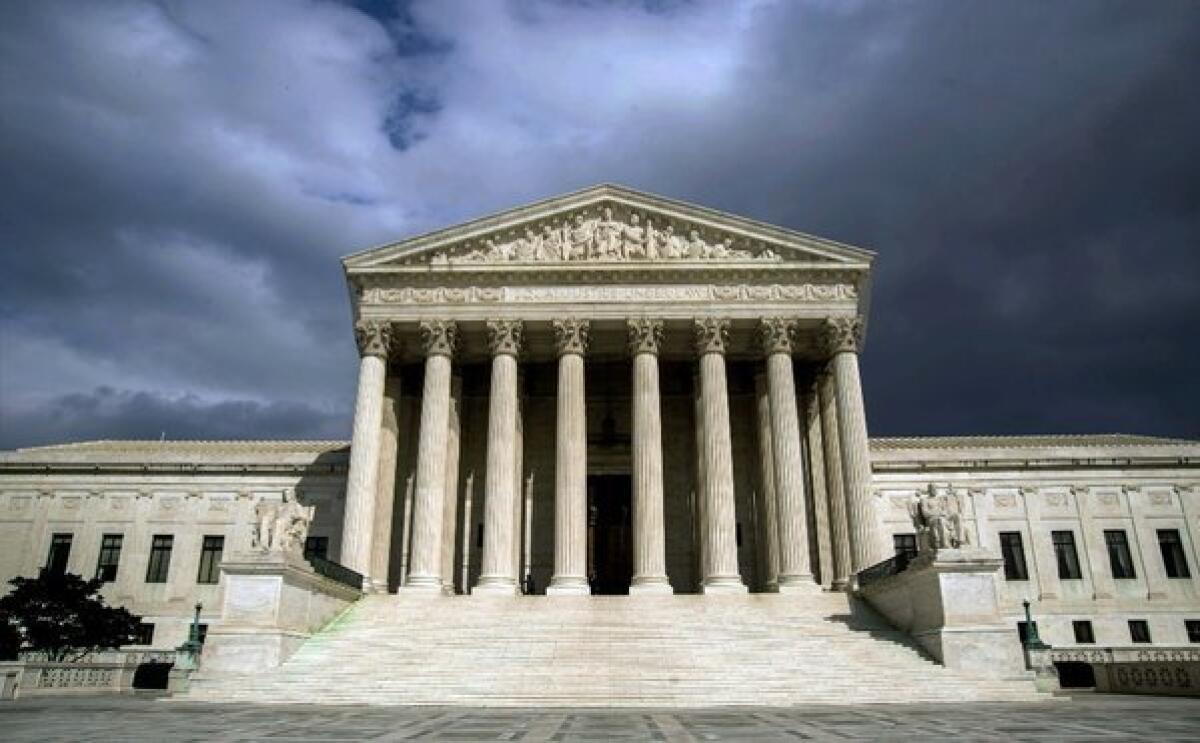Will Supreme Court’s take on gene patents help Myriad?

- Share via
While the Supreme Court’s decision to forbid patents on human genes knocked out Myriad Genetics’ long-guarded patent on two genes linked to breast cancer, the Utah-based company’s stock still rose soon after the news broke. That bit of investor optimism may have been due to the court’s decision to allow patenting of cDNA, which they called “synthetically created” – though it’s unclear if that optimism is warranted, doctors pointed out.
The Supreme Court ruled unanimously that although “naturally occurring” DNA like the genes BRCA1 and BRCA2 could not be patented, the company could still patent the cDNA version of these two genes, classifying those as man-made products. Complementary DNA, or cDNA, copies the parts of a particular DNA strand that code for proteins (exons) while excluding the bits of non-coding DNA (introns).
Dr. Cy Stein, chair of medical oncology at City of Hope in Duarte, applauded the two separate aspects of the Supreme Court decision. Forbidding the patenting of human genes would allow more researchers to explore targeted therapies for genes linked to breast and other cancers, he said.
“It’s just a fantastic thing, and it has released a serious chill that we were all feeling,” Stein said.
At the same time, allowing companies to patent cDNA as a man-made product threw a bone to companies looking to protect their work.
“You have to have some protection. … People have to be able to make a profit somehow,” Stein said.
But UCLA medical geneticist Dr. Wayne Grody said that the cDNA provision didn’t amount to much protection in light of technological advances since the patents were filed. Researchers no longer need to copy a strand of DNA in order to get its sequence, he said.
“The modern technology will give us the DNA sequence of anything that’s in the test tube,” Grody said. “We don’t need to have any prior knowledge of its sequence.”
Thus, the cDNA protections may not have been as much cause for celebration among Myriad’s supporters as they initially seemed, he added.
“It’s almost a moot point. … It doesn’t stop the rest of us from now using our own techniques to examine these genes,” Grody said.
Follow me on Twitter @aminawrite.







